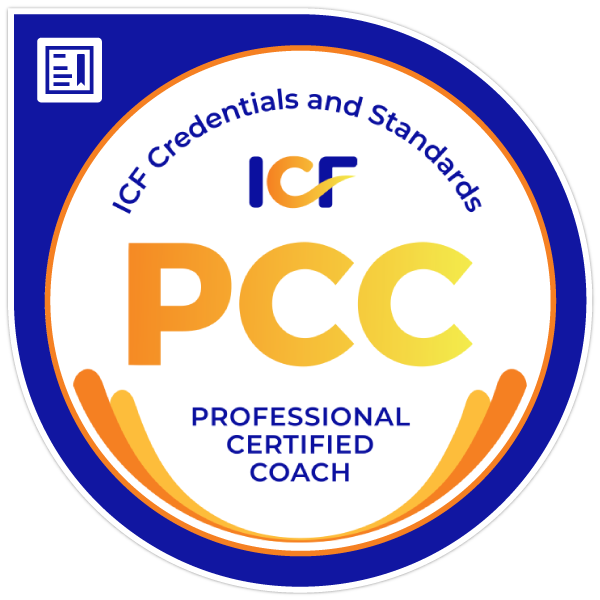TIPS + TOOLS
The Weekly Launch
Check out the latest Launch articles where I tackle important conversations so you can feel more comfortable in your feelings.

Parenting, it's a journey like no other, isn't it? It's filled with highs and lows, joys and challenges, and a constant learning curve for both us and our children. It's easy to get caught up in the do's and don'ts, forgetting sometimes that parenting isn't just about guiding but also about understanding. I want to share the power of listening and allowing autonomy in our relationships with our children. It's about striking that delicate balance where we're not just overseeing but truly engaging with our children's thoughts, feelings, and decisions. Think about it. How often do we, as parents, find ourselves in a loop of instructing, directing, and, let's be honest, micromanaging? It's natural to want to protect our kids, to steer them clear of mistakes and hardships. But in doing so, are we inadvertently clipping their wings, not allowing them the room to grow, make mistakes, and learn from them? Natural consequences are an invaluable teacher. Take the simple example of laundry. If a child forgets or chooses not to do their laundry, the natural consequence isn't a lecture from us. It's them going to school in clothes that aren't fresh. Sure, they might face remarks from friends and a moment of discomfort, but it's a lesson they'll remember. It's real, tangible, and it sticks. This isn't about letting our kids falter for the sake of it. It's about letting them live through the natural outcomes of their choices, helping them connect the dots between action and consequence. We need to guide and walk beside our children, not in front or behind them. Our role is to be their compass, not their map. This means giving them the space to explore, make choices, and even face the music when it's called for. It's about showing trust in their capacity to handle life, step by step, decision by decision. Our children crave control over their lives, a sense that they're steering their ship. This isn't a trait that fades as they grow; it's a fundamental human desire, applicable at all stages of life. By listening more, by granting them autonomy, we're not just fostering their independence; we're building their confidence, their sense of responsibility, and their understanding of the world around them. So, let's take a step back sometimes. Let's be there to support, not smother; to guide, not dictate. Our children's journeys are their own to make, filled with lessons only life can teach. Our job? To listen, to allow, and to love – unconditionally. Through this, we're not just raising children; we're nurturing future adults who are resilient, thoughtful, and capable of navigating the complexities of life. In the end, isn't that what we all wish for as parents?

The teenage years are often perceived as a time of youthful exuberance, boundless energy, and carefree laughter. Yet, behind the smiles and seemingly carefree demeanor, teenagers navigate a complex landscape of challenges, both internal and external. The pressures of academics, social expectations, hormonal changes, and the ever-evolving digital world can take a toll on their mental and emotional well-being. As parents, it is crucial to delve deeper, understand the unspoken challenges faced by our teens, and provide the necessary support and guidance to help them navigate this transformative period of their lives. The Mask of Adolescence: Adolescence is a phase of self-discovery, but it can also be a time of immense self-doubt. Many teenagers find themselves struggling with low self-esteem, body image issues, and a constant need for validation from their peers. The pressure to conform to societal standards and fit into certain molds can lead to emotional distress and a sense of isolation. Behind their smiles, teens often hide their insecurities, anxieties, and fears, afraid to burden others with their troubles. Academic Stress and Performance Pressure: Academic demands, intense competition, and the pursuit of future success can place an enormous weight on the shoulders of teenagers. The pressure to excel academically and secure a bright future can lead to excessive stress, anxiety, and even depression. The fear of failure, overwhelming schedules, and the constant need to meet expectations can leave little room for relaxation and self-care. Recognizing the signs of academic stress and fostering a healthy approach to achievement is crucial for parents in supporting their teens. Navigating the Digital World: In today's digital age, teenagers face unique challenges that previous generations did not encounter. The omnipresence of social media, cyberbullying, and the pressure to maintain an online persona can deeply impact their mental well-being. The unrealistic standards portrayed on social media platforms can lead to feelings of inadequacy, comparison, and anxiety. Parents need to guide their teens in establishing healthy online boundaries, fostering digital literacy, and encouraging open communication about the digital world's potential pitfalls. Emotional Turmoil and Mental Health: The teenage years are characterized by a whirlwind of emotions as hormonal changes and the transition to adulthood take place. Teenagers may struggle with mood swings, heightened emotions, and difficulty regulating their feelings. Additionally, mental health conditions such as anxiety, depression, and eating disorders can emerge or worsen during this time. Recognizing the signs of emotional turmoil and addressing mental health concerns with empathy and professional support are essential steps parents can take to help their teens. Effective Communication and Active Listening: One of the most powerful ways parents can support their teens is by establishing open lines of communication. Creating a safe and non-judgmental environment where teenagers feel heard and understood is crucial. Active listening, empathy, and validating their experiences can go a long way in helping them navigate their challenges. Parents should also encourage their teens to express their emotions, provide guidance when needed, and seek professional help when necessary. Promoting Self-Care and Well-being: Teaching teens the importance of self-care and prioritizing their well-being is an invaluable lesson. Encouraging healthy lifestyle habits, such as regular exercise, proper nutrition, and adequate sleep, can significantly impact their overall mental and physical health. Additionally, helping them explore healthy coping mechanisms, such as engaging in hobbies, practicing mindfulness, and seeking support from friends and family, can provide valuable tools for managing stress and building resilience. Conclusion: Behind every teenager's smile lies a unique journey filled with both triumphs and struggles. Understanding the unspoken challenges faced by teens is the first step toward supporting them effectively. By fostering open communication, promoting self care, and providing guidance, parents can create an environment where their teens feel safe, understood, and empowered. Together, we can help our teenagers navigate the complexities of adolescence, ensuring their mental and emotional well-being as they transition into adulthood.

In an era driven by pharmaceutical advancements, concerns are growing regarding the excessive prescribing of medication to address ordinary emotional experiences. While medication plays a vital role in treating clinical disorders, it is essential to question whether every human emotion requires pharmacological intervention. This article explores the notion that feelings, such as sadness and loss following a breakup, are natural processes that individuals need to work through, rather than relying solely on medication. The Prevalence of Over-Prescribing The medical community faces increasing pressure to prescribe medications for emotional distress. Society's desire for instant relief and quick-fix solutions has contributed to the over-prescribing of medications for feelings that are a part of the normal human experience. Consequently, people are becoming overly dependent on pharmaceuticals to cope with life's inevitable challenges. The Breakup Experience: Sadness and Loss Breakups, a common occurrence in romantic relationships, often evoke emotions of sadness and loss. These feelings are normal reactions to the termination of a significant relationship. While the pain may be intense, it is crucial to acknowledge that experiencing these emotions is a necessary part of the healing process. By numbing or suppressing these emotions with medication, individuals may inadvertently impede their personal growth. Rather than confronting and processing their feelings, they risk prolonging the healing process and missing out on opportunities for self-reflection and self-discovery. Instances of Medication Over-Reliance Unfortunately, the over-reliance on medication for ordinary emotional experiences extends beyond the breakup scenario. Instances where medication is frequently prescribed instead of addressing underlying feelings include: Stress and Anxiety: In a society plagued by stress and anxiety, individuals are often prescribed medication as a first-line treatment, without fully exploring the root causes or considering alternative interventions. While medication can provide temporary relief, it does not address the underlying issues contributing to the distress. Bereavement: The loss of a loved one is a deeply emotional experience that naturally involves grief and sorrow. While it is essential to seek support during such times, relying solely on medication to suppress these emotions may hinder the healing process and impede the necessary mourning and acceptance. Work-related Burnout: As work demands increase, many individuals face burnout, experiencing exhaustion, cynicism, and reduced efficacy. While medication may temporarily alleviate the symptoms, it does not address the systemic issues contributing to burnout. Lifestyle adjustments, self-care, and creating healthier work environments are more sustainable solutions. The Importance of Therapy, Coaching, and Support Instead of resorting to medication alone, individuals experiencing emotional distress can benefit from therapy and support systems. Mental health professionals offer guidance in navigating complex emotions, providing coping strategies, and facilitating personal growth. Through therapy and coaching individuals can develop effective tools to manage their emotions, fostering long-term resilience and emotional well-being. Exploring Alternative Approaches Beyond therapy and coaching, various alternative approaches can complement the healing process. Engaging in physical exercise, maintaining a healthy lifestyle, practicing mindfulness or meditation, and nurturing meaningful relationships can all contribute to emotional well-being. These self-care practices empower individuals, enabling them to actively navigate their emotional journey. Let's Consider While medication undoubtedly plays a crucial role in addressing clinical disorders, the reflexive tendency to prescribe medication for every emotional experience warrants careful consideration. The breakup experience, characterized by sadness and loss, is a natural process that fosters personal growth. By embracing these emotions and seeking appropriate support, individuals can develop emotional resilience and overcome distress holistically. Promoting a shift away from over-prescribing and emphasizing therapy, coaching, self-care, and personal growth will foster a society that prioritizes emotional well-being. It is imperative to reevaluate our approach to emotional distress, acknowledging that not every feeling necessitates medication. Sometimes, what we genuinely need is the courage to face and grow from life's inevitable challenges.

Hey there! Let's have a heart-to-heart conversation about something that might make us feel a little uneasy at first—uncomfortable conversations. We all know those moments when we hold back from expressing our true thoughts and needs to our friends, family, or partners. We're afraid of rocking the boat, hurting others' feelings, or even facing our own vulnerabilities. But here's the thing: those uncomfortable conversations have the power to unlock a life you truly desire. The Fear of Uncomfortable Conversations: You know that knot in your stomach when you're about to say something that might challenge the status quo or open up a can of worms? I've felt it too. It's that fear of rejection, conflict, or hurting someone we care about that holds us back. But by avoiding these conversations, we inadvertently build walls that keep us from growing and connecting authentically. The Cost of Silence: Picture this: unresolved conflicts lingering in the air, unmet needs piling up, and misunderstandings growing like weeds. That's what happens when we choose silence over uncomfortable conversations. We end up feeling unfulfilled, disconnected, and trapped in a life that doesn't align with our true desires. It's time to break free from that cycle. Breaking the Silence: I want you to know that embracing uncomfortable conversations is a game-changer. It starts with acknowledging the power they hold—the power to spark growth and transform relationships. Once we recognize discomfort as a sign of progress, we can reframe our mindset and see these conversations as opportunities for personal and relational transformation. Cultivating Emotional Intelligence: Here's the secret sauce to navigating uncomfortable conversations: emotional intelligence. It's about recognizing, understanding, and managing our emotions and those of others. When we develop emotional intelligence, we become better equipped to approach difficult topics with empathy, active listening, and a genuine desire to understand different perspectives. Setting the Stage for Productive Conversations: Creating a safe and supportive space is key to having uncomfortable conversations that lead to growth. Let's establish ground rules together: active listening, mutual respect, and non-judgmental communication. When we set the stage this way, it becomes easier to express our thoughts and emotions honestly. Addressing Taboo Topics: You know those topics people tend to avoid like the plague—money, sex, intimacy, politcs, religion, boundaries? Well, it's time to bring them out into the open. These subjects are integral to our overall well-being and the health of our relationships. By respectfully bringing up these topics, we open doors to growth, understanding, and enhanced intimacy. Practicing Vulnerability: I get it—vulnerability can feel uncomfortable in itself. But trust me when I say it's a superpower. By embracing vulnerability and openly sharing our thoughts, fears, and desires, we invite others to do the same. This creates a sense of trust and authenticity in our relationships that allows us to truly connect on a deeper level. The Power of Active Listening: Communication is a two-way street, and active listening is the secret ingredient. It's about more than just hearing the words; it's about understanding the emotions and intentions behind them. When we give our full attention and genuinely seek to comprehend the other person's perspective, we show empathy and create an environment where productive dialogue can thrive. Transforming Conflict into Growth: Let's face it—uncomfortable conversations often involve conflicts and differences of opinion. But here's the silver lining: these conflicts can be opportunities for growth and learning. Instead of avoiding or escalating them, we can reframe them. By approaching conflict with an open mind, a desire to compromise, and a commitment to finding common ground, we can transform conflict into stronger relationships and personal development. The Freedom in Uncomfortable Conversations: Imagine a life where you no longer carry the weight of unexpressed thoughts and unmet needs. Embracing uncomfortable conversations offers you that freedom. It empowers you to shape your relationships, express your true self, and live a life that aligns with your desires. It's time to step out of your comfort zone and into a world of unlimited possibilities. So, my friend, let's take a leap together. Embracing discomfort might feel daunting, but remember, it's in those uncomfortable conversations that we find the power to transform our communication and our lives. By facing our fears, practicing vulnerability, and actively listening, we create a space for deeper connections and personal growth. It's time to break the silence, unlock your true potential, and live a life that reflects your authentic self. Are you ready?

We all carry within us the weight of grief, a silent companion that accompanies us through life's ups and downs. Grief, often veiled behind a façade of strength, is an emotion that permeates our existence. It encompasses more than just the loss of a loved one; it extends to the shattered dreams, the unmet expectations, and the profound changes that alter the course of our lives. Yet, society teaches us to brush grief aside, to hide our emotions and present a happy face to the world. It is time we break this cycle and give grief the voice it deserves. Unmasking Grief: Where Does it Hide? Grief, like a chameleon, finds refuge in the depths of our being, camouflaging itself in various ways. We may bury our grief in the recesses of our hearts, avoiding the pain and pretending everything is fine. We may numb ourselves with distractions, seeking solace in work, excessive exercise, or other means of escape. But the truth remains: grief lurks in the shadows, silently affecting every aspect of our lives. It is time to confront this hidden companion and launch on a journey of healing. My Personal Journey: Facing the Unseen Grief I know all too well the consequences of ignoring grief. After the devastating loss of my daughter Hailey, I closed myself off from the world. I refused to look at pictures, listen to certain songs, or acknowledge the pain that threatened to consume me. In the process, I lost not only my daughter but also a part of myself. I gained weight, both physically and emotionally, as grief seeped into every corner of my existence. It was only when I faced my grief head-on that I began to find healing. Beyond Death: The Multifaceted Nature of Grief Grief wears many faces, and its presence extends far beyond the loss of a loved one. It permeates the aftermath of broken relationships, loss of health, and the life we thought we once would have. It accompanies us in the face of major life changes, such as divorce, career setbacks, or the loss of our sense of identity. By acknowledging the various forms of grief, we grant ourselves permission to heal and grow. Embracing Healing: Opening the Dialogue We need to break free from the shackles of silence and open up about our grief. By sharing our stories, we create a safe space where others can find solace and validation. It is through honest conversations that we empower ourselves and others to navigate the challenging terrain of grief. Let us encourage each other to embrace vulnerability, to shed the burden of pretending everything is fine, and to give grief the voice it desperately seeks. Finding Solutions: Strategies for Healing Navigating grief requires active participation in our healing journey. It begins with acknowledging our pain, allowing ourselves to feel, and seeking support from loved ones, a coach, or support groups. Engaging in self-care practices, such as journaling, exercise, and mindfulness, can provide valuable outlets for expression. By confronting grief head-on, we can transform our pain into resilience and emerge stronger on the other side. Give Grief a Voice Grief is not meant to be hidden or silenced; it is an integral part of the human experience. By giving grief the voice it deserves, we create a space for healing, empathy, and growth. Let us come together, share our stories, and support one another through the tumultuous journey of grief. Remember, you are not alone. I faced my grief head-on, you can too. Together, we can give grief the voice it longs for, and in doing so, find the strength to heal and thrive.







